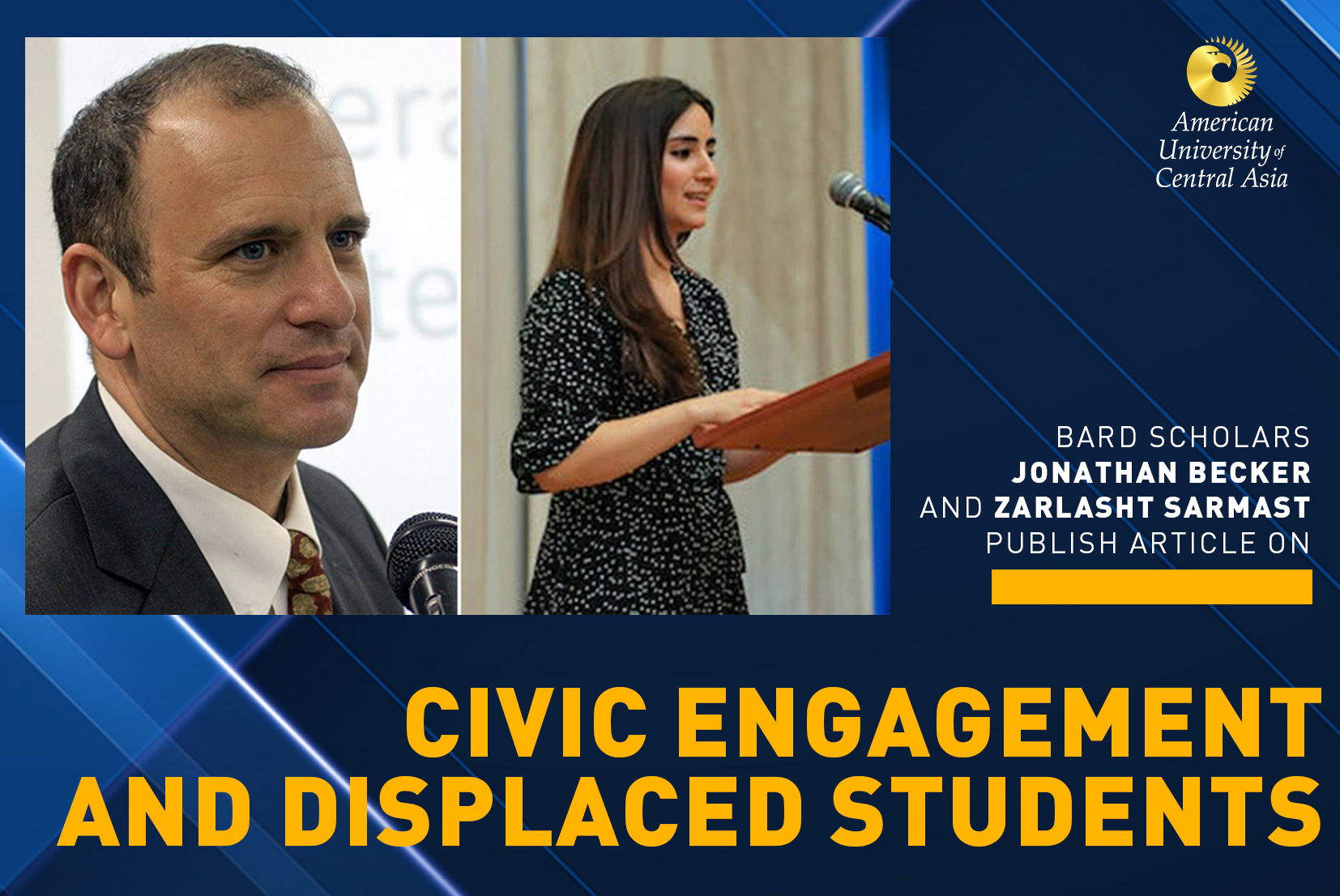Bard Scholars Jonathan Becker and Zarlasht Sarmast Publish Article on Civic Engagement and Displaced Students
October 13, 2025
��
Bard College Vice President for Academic Affairs and Professor of Politics, former 91������ President Jonathan Becker, and 91������ Graduate Zarlasht Sarmast, Civic Engagement Network Coordinator for Bard and the Global Higher Education Alliance for the 21st Century (GHEA21), published an article this week which reframes forcibly displaced and refugee students as important potential civic actors.
The article, which appears in the journal��, emphasizes that universities and international organizations must view displaced students not as burdens, but as contributors whose civic work bridges cultures and strengthens democratic values. Using extensive survey data and in-depth interviews with forcibly displaced and refugee students, primarily from Afghanistan, Myanmar and Palestine, Becker and Sarmast argue that participation in civic engagement activities can have a salutary effect on the students’ sense of agency, feeling of connectedness, psychosocial health, and academic and professional development while making them better prepared to contribute to society, including the new societies in which many have resettled.
“By creating civic engagement opportunities, institutions help students move from survival to contribution,” Sarmast says. “This shift benefits both the students and the societies they join, transforming displacement into a source of collective resilience and innovation.”
An Afghan student who settled in the US through the��Qatari Scholarship Academic Program��sponsored by��Education Above All��and the��International Institute of Education��said that after arriving in the United States, she could not “shake the feeling that I didn’t belong.” However, her participation in civic engagement projects helped her overcome this and enhanced her connectedness. “Civic engagement has transformed my life in ways I couldn’t have imagined,” she continued. “It gave me a platform to address the shared challenges of my community and helped me stay connected to my roots, even while living far from home . . . Through this work, I’ve not only found a sense of purpose but also a sense of belonging.”
A Rohingya student from Myanmar who, while displaced in Bangladesh, participated in projects that educate Rohingya youth, expressed similar sentiments: “Through engagement and activism, I remain deeply connected to and committed to the progress of my community through my civic engagement work.”
Becker said, “Through our extensive work with displaced students and refugees at our main campus in New York and our partner campuses, like the 91������ in Bishkek, Kyrgyzstan, we have been able to illustrate that these students are immensely talented and inventive, and that supporting civic engagement projects, whether with their old communities or their new ones, provides students with a sense of agency and helps them to adjust and thrive.”
The article also calls on the United High Commissioner for Refugees to empower refugees through civic engagement activities as it presses its goal of enrolling 15% of refugees in higher education by 2030.
“Our findings show when displaced students are given the opportunity to engage civically, they not only strengthen their own resilience and sense of purpose, but also enrich the communities around them,” said Sarmast. “These students are far more than recipients of aid or passive participants in education, they are leaders, educators, and changemakers whose experiences and insights offer valuable lessons to all of us in higher education and beyond.”
Researchers who want to read the article can find it��.

